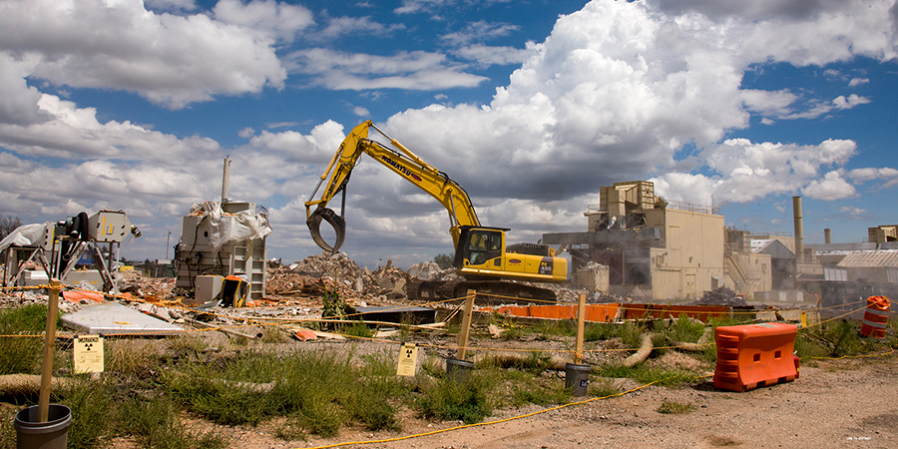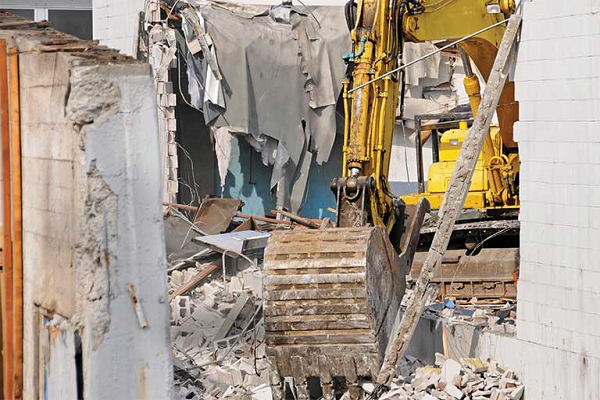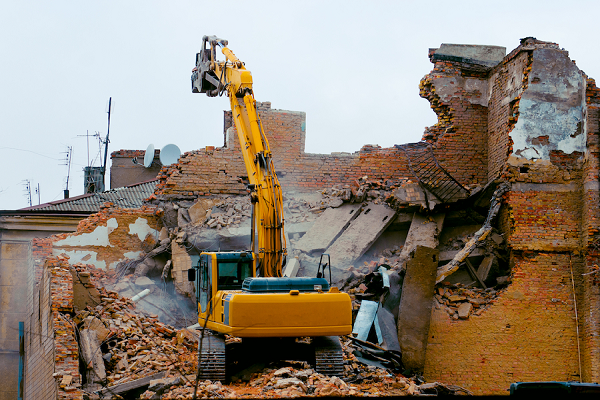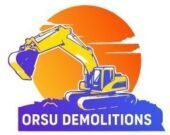Demolition Works in Dubai: Transforming the Urban Landscape

Dubai, a city known for its iconic skyscrapers and architectural marvels, constantly reinvents itself to meet the demands of a dynamic urban environment. One crucial aspect of this transformation is demolition works. Demolition works in Dubai play a vital role in clearing spaces for new construction projects, ensuring the city’s evolution remains at the forefront of innovation. In this article, we will explore the significance of demolition works in Dubai and the processes involved, showcasing how they contribute to the city’s ever-changing skyline.
Demolition Works: Reshaping Dubai's Urban Landscape
Demolition works in Dubai serve as a catalyst for growth and rejuvenation in the city. With Dubai’s continuous expansion, the need arises to dismantle older structures and buildings, clearing the way for modern, sustainable, and visually appealing constructions.
These demolition projects not only create space for new developments but also allow for the implementation of advanced infrastructure and architectural designs that align with Dubai’s vision for the future.
By removing outdated buildings, Dubai can embrace innovative construction methods and technologies, resulting in structures that are energy-efficient, environmentally friendly, and capable of meeting the evolving needs of the city and its residents.
The demolition process paves the path for progress, enabling Dubai to maintain its reputation as a global hub of excellence and reinforcing its commitment to pushing boundaries in urban development.
Safety and Expertise in Demolition Works
Dubai places a paramount importance on safety in both construction and demolition activities. Demolition works in Dubai strictly adhere to rigorous safety regulations to safeguard the well-being of workers, residents, and the environment.
Expert teams equipped with extensive knowledge and experience in demolition techniques are at the forefront of these projects, ensuring a high level of professionalism and expertise. These teams employ cutting-edge technology and methods to carry out demolition works efficiently and effectively.
By utilizing advanced equipment, monitoring systems, and safety protocols, Dubai minimizes risks associated with demolition activities. The city’s commitment to safety not only protects the workforce involved in these projects but also ensures the preservation of surrounding structures and the environment.
Through these stringent safety measures, Dubai sets a benchmark for responsible demolition practices, fostering a secure and sustainable environment for its residents and visitors alike.
Sustainable Demolition Practices
Dubai’s commitment to sustainability extends to demolition works, where specialized techniques are employed to minimize waste generation and reduce the environmental impact. The city recognizes the importance of responsibly managing construction and demolition waste.
Through careful planning and implementation, Dubai ensures that materials salvaged from demolished structures are repurposed rather than ending up in landfills. This approach significantly reduces the need for new raw materials and conserves valuable resources.
Demolition works in Dubai prioritize recycling, where materials such as concrete, metals, and wood are carefully sorted and processed for reuse in future projects. Advanced recycling facilities and processes are employed to maximize the recovery of valuable materials, thereby reducing the demand for new extraction and production.
By adopting these sustainable practices, Dubai demonstrates its commitment to circular economy principles, minimizing waste and promoting resource efficiency. These efforts not only contribute to environmental conservation but also showcase Dubai as a global leader in sustainable urban development.
Precision and Efficiency: The Demolition Process
The demolition works in Dubai is characterized by a systematic and well-coordinated approach, ensuring efficient and controlled execution. Before commencing any demolition work, a thorough site assessment is conducted to evaluate the project’s unique requirements and challenges. This assessment takes into account factors such as surrounding structures, environmental considerations, and safety precautions.
Based on the findings of the site assessment, the most suitable demolition methods are determined. Controlled implosions, selective dismantling, or mechanical demolition techniques may be employed, depending on the specific project requirements. These methods are carefully chosen to ensure minimal disruption to the surrounding areas and to mitigate any potential risks.
Dubai’s emphasis on precision and coordination in the demolition process allows for the timely completion of projects, ensuring that the area is cleared efficiently and ready for new developments. By adhering to a systematic approach, Dubai maintains its reputation for effective project management and demonstrates its commitment to minimizing disruptions while carrying out demolition works in Dubai.
The Role of Technology in Demolition Works
Dubai is at the forefront of embracing technological advancements to enhance the efficiency and effectiveness of demolition works. State-of-the-art equipment plays a crucial role in the dismantling process, enabling precise and controlled demolitions. High-reach excavators with extended arms provide the necessary height and reach to safely dismantle tall structures. Diamond wire saws are utilized for cutting through reinforced concrete and other robust materials with precision. Robotic machines are employed for tasks that require precision and accuracy in confined spaces.
Furthermore, advanced monitoring systems are deployed during demolition projects. These systems allow for real-time tracking of progress and safety parameters, ensuring that the demolition process is carried out smoothly and in compliance with established protocols. By leveraging technology, Dubai optimizes the efficiency of demolition works, minimizing risks, reducing downtime, and improving overall project outcomes.
Through the integration of cutting-edge equipment and monitoring systems, Dubai remains at the forefront of innovation in the demolition industry. The city’s commitment to embracing technological advancements ensures that demolition projects are executed with the highest level of efficiency, safety, and precision.
Demolition Works in Dubai: Contributing to UAE's Progress
Demolition works in Dubai play a crucial role in the progress and development of the city. By removing outdated structures and making way for innovative architectural designs, Dubai constantly rejuvenates its urban landscape. This proactive approach ensures that the city remains at the forefront of global investments, tourism, and economic growth.
Demolition works in Dubai create opportunities for new businesses to thrive and contribute to the UAE’s diverse economy. The construction industry experiences a surge in activity, resulting in job creation and skills development. This not only benefits the local workforce but also attracts talent from around the world, further fueling Dubai’s growth.
Additionally, demolition works support sustainable development in UAE. Outdated and inefficient buildings are replaced with modern, energy-efficient structures, reducing the environmental footprint and promoting a greener city. These sustainable practices align with Dubai’s commitment to becoming a leading sustainable and smart city.
By embracing demolition works as a catalyst for progress, Dubai solidifies its position as a global hub of excellence. The city’s ability to continually reinvent itself through innovative designs and infrastructure attracts investors, tourists, and businesses, reinforcing its reputation as a thriving and dynamic cosmopolitan center.
Demolition works in Dubai play a crucial role in transforming the urban landscape and maintaining the city’s position as a global leader in architecture and innovation. Through adherence to safety measures, sustainable practices, and the use of advanced technology, Dubai ensures that demolition projects are carried out efficiently and responsibly. With each demolition, the city paves the way for new structures, embracing progress while preserving its unique charm. Demolition works in Dubai are not only about breaking down old buildings but also about building a better and brighter future.



